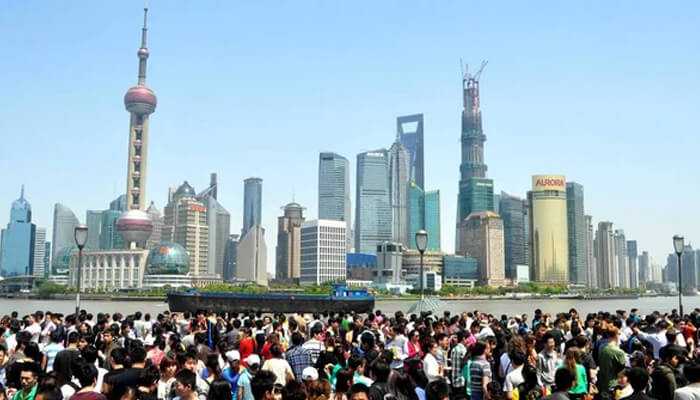With important travel and expenditure data indicating a weaker-than-anticipated recovery in consumption amid a broader economic downturn, the China Golden Week holiday has come to a quiet close.
According to data released by the Ministry of Culture and Tourism on Saturday, a total of 826 million trips were made in mainland China in the eight days leading up to October 6. This was an increase of 4.1% from the same period in 2019 prior to the pandemic when Beijing imposed strict lockdowns and harsh travel restrictions.
Tourist spending increased by 1.5% from 2019 levels to $753.43 billion yuan ($103 billion).
However, neither rise met government expectations. The ministry had projected that domestic travel would total 896 million trips and tourism expenditures would total 782.5 billion yuan ($107 billion) before the break.
Travel to and from the Chinese mainland was disappointing.
During the Golden Week vacation, 1.48 million individuals on average crossed the border each day, according to the National Immigration Administration. The amount was less than the 1.58 million that the organization had previously predicted and just 85.1% of the volume that was reported in 2019.
Goldman Sachs analysts stated on Sunday that the tourist figures “suggest the services recovery has decelerated,” but added that a recovery was still in progress.
Data from Alipay, the largest payment app in China with more than 700 million active monthly users, revealed that just 80% of travelers using its payment services for international travel did so in 2019. To 105% of the 2019 level, the average spending per person climbed somewhat.
After Chinese consumers were released from three years of financial restrictions in December, Beijing hoped that a wave of “revenge spending” would support economic growth.
Businesses around the world that depend on tourism are also anticipating the return of Chinese tourists, who were the highest-spending tourists prior to the pandemic. However, China’s consumption sector has recovered at a very slow rate.
The dissipation of “pent-up demand,” declining purchasing power amid the economic slump, and shifting travel patterns, according to Citi analysts, were to blame for the weaker-than-expected comeback in travel.
The week before the holidays saw multi-year lows for China’s box office.
According to data from online ticketing site Maoyan Entertainment, which is funded by Tencent, movie ticket sales during the break were only 2.7 billion yuan ($370 million), which is a 39% decrease from the amount in 2019.
Only 2022’s widespread COVID lockdowns that forced the closure of the majority of the nation’s theatres for months had a lower box office in the previous five years than this one.
The unexpectedly low receipts came after a summer that set records for box office in China, which peaked between June 1 and August 31. A lot of young, female moviegoers were drawn to the theatre by a number of blockbusters.
According to the CPCA, overall EV sales in China slowed last month, with growth slowing from 26% in August to 23% when compared to a year earlier.



